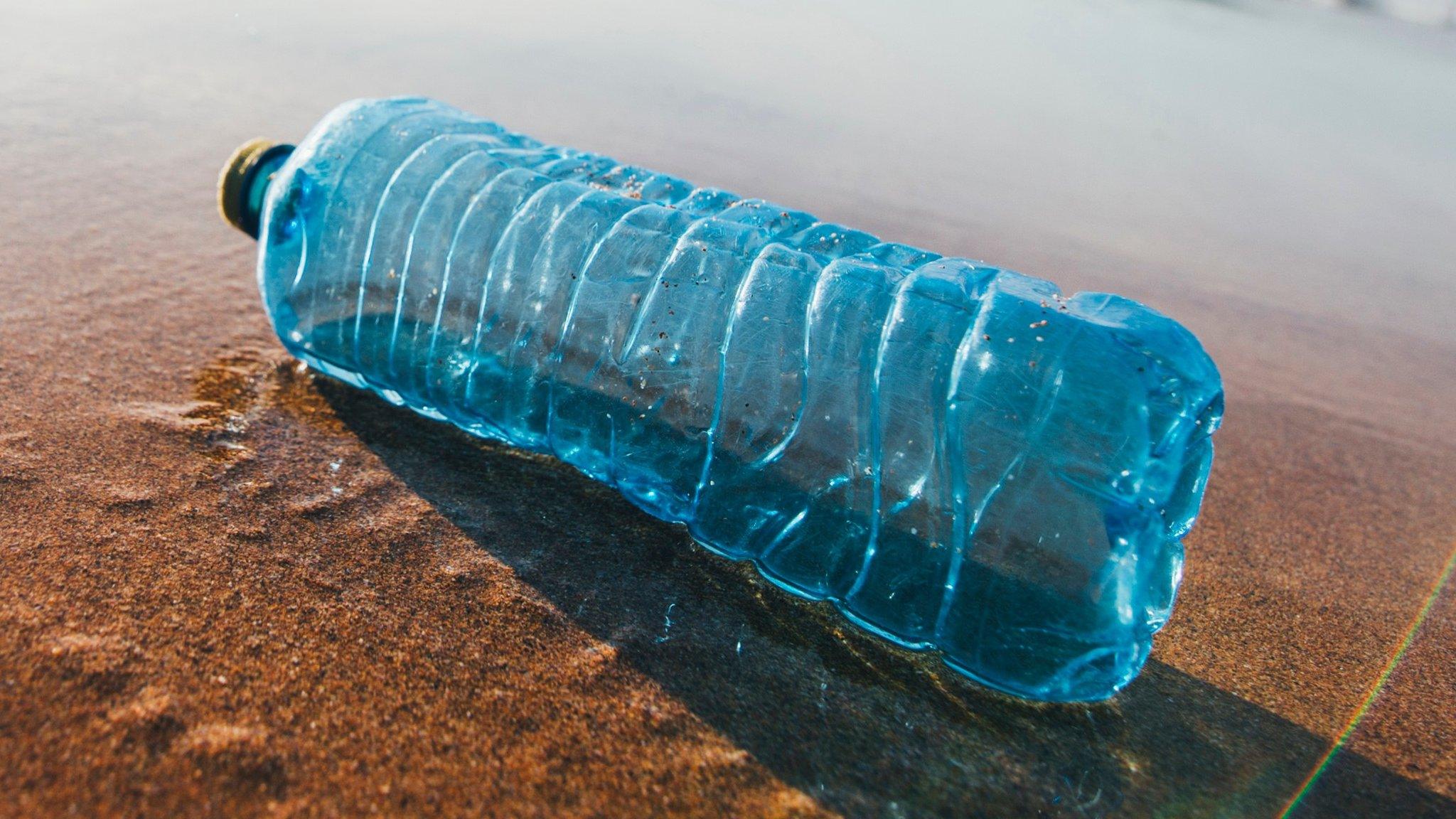Plastic: Government plans to ban single-use plastic cutlery in England
- Published
- comments
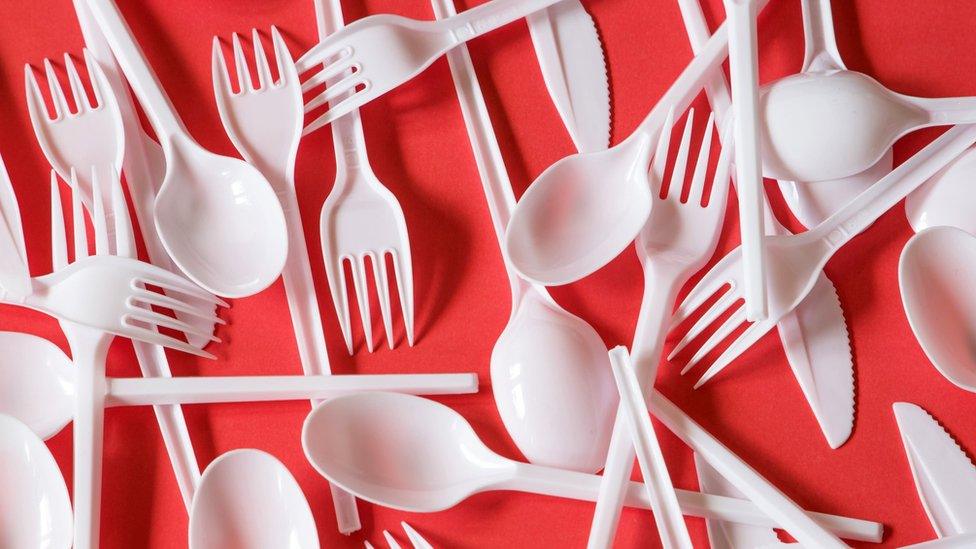
The ban could bring an end to the sale of plastic cutlery
It's widely known that plastic is a big problem when it comes to looking after the environment and over the years, organisations and governments around the world have taken lots of different steps to tackle the issue.
In 2018, the government's microbead ban came into force in England and the following year came ia ban on plastic straws, drinks stirrers, and plastic cotton buds in England
Now there are plans to ban items such as single-use plastic cutlery, plates and polystyrene cups in England as part of the "war on plastic".
Ministers believe the move could help reduce litter and cut the amount of plastic waste in oceans.
A public consultation on the subject will launch in autumn which the government says will "lead to businesses using more sustainable alternatives and prevent plastic litter from polluting our landscapes".
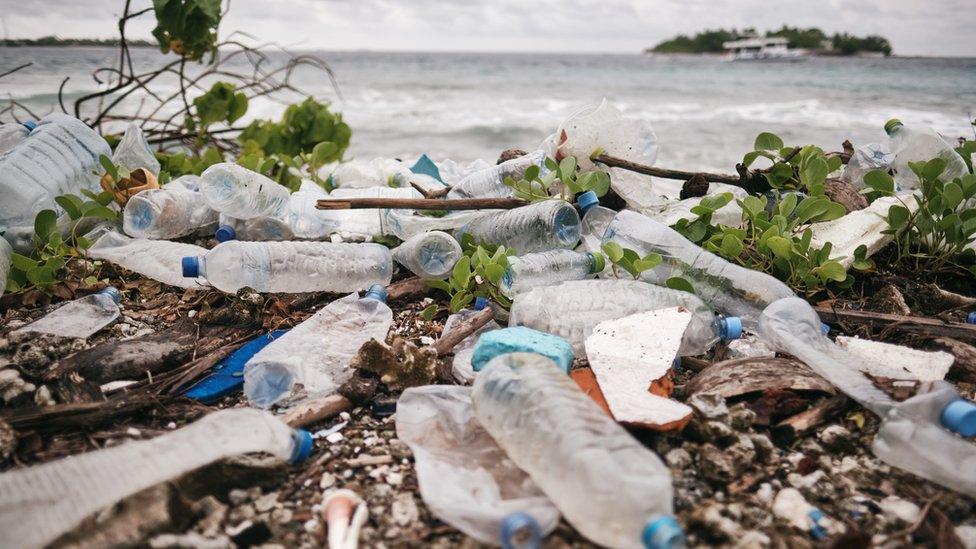
Single-use plastics can end up in the world's oceans
It says each person uses approximately 18 single-use plastic plates and 37 single-use plastic items of cutlery each year in England. These items don't break down for many years, often ending up in landfill, as litter in the countryside or in the world's oceans.
Around the world, more than one million birds and over 100,000 sea mammals and turtles die every year from eating or getting tangled in plastic waste, according to government figures.
"We've all seen the damage that plastic does to our environment. It is right that we put in place measures that will tackle the plastic carelessly strewn across our parks and green spaces and washed up on beaches," said Environment Secretary George Eustice.
If you can't see this vote, click here.
What's been said about the ban?
Some environmental organisations and charities have welcomed the government's plans to ban a number of single-use plastic items but say more needs to be done more quickly.
"This is a much-needed move, that we as campaigners have been calling for, along with thousands of our supporters and members of the public," said Jo Morley from the environmental charity City to Sea.
However, she also says the government needs to go "much, much, much further" in tackling plastic waste.
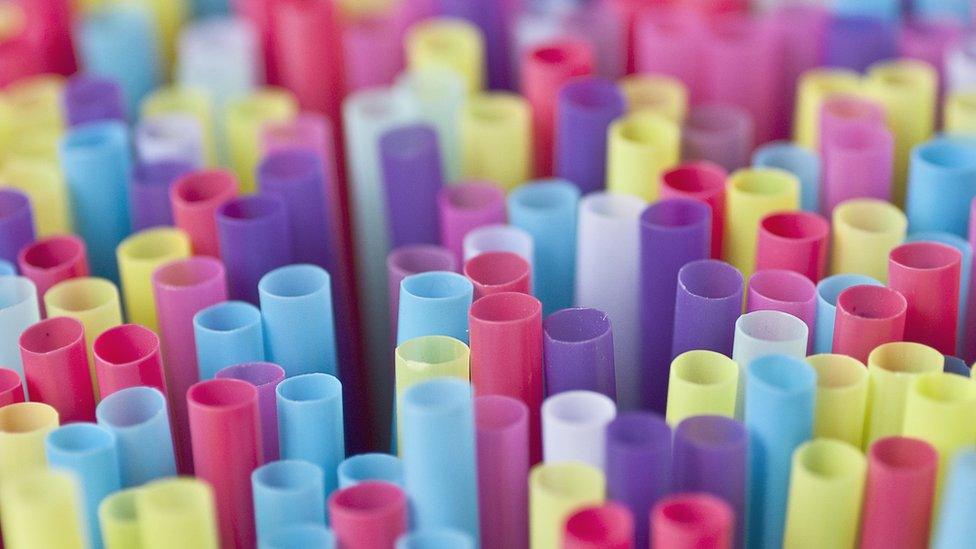
A ban on plastic straws came into force in 2020
"We are really facing an environmental crisis, our oceans are full of plastic, and they're killing marine life, they are damaging our eco-systems and they are actually threatening human health," Jo said.
Many other activists also believe more urgent and wider action is needed. Plans to ban single-use plastic cutlery have already been announced in Scotland, Wales and Northern Ireland and the European Union brought in a similar ban in July earlier this year.
The ban in England could take over a year to become official as laws need to go through Parliament. It's understood the ban may not come into force until April 2023, which many campaigners say is too long.
"We need government to take an overall approach to say that what we are going to do is bring an end to all plastic pollution, and what we're going to do is drastically reduce the amount of all single-use products, not just a fork followed by a spoon followed by a cup," said Kierra Box from the charity Friends of the Earth.
What else is the government doing to tackle plastic pollution?
WATCH: How Norway recycles plastic bottles
The government has already introduced some important measures under its new Environment Bill to tackle levels of plastic waste.
This includes its deposit return scheme which aims to encourage people to recycle their plastic bottles, and a plastic packaging tax, which is due to come into force from April 2022 and will affect plastic packaging which doesn't meet a minimum threshold of at least 30% recycled content.
The government hopes this will lead to more recycled plastic being used, as well as increased levels of recycling and plastic waste collection.
- Published26 August 2021
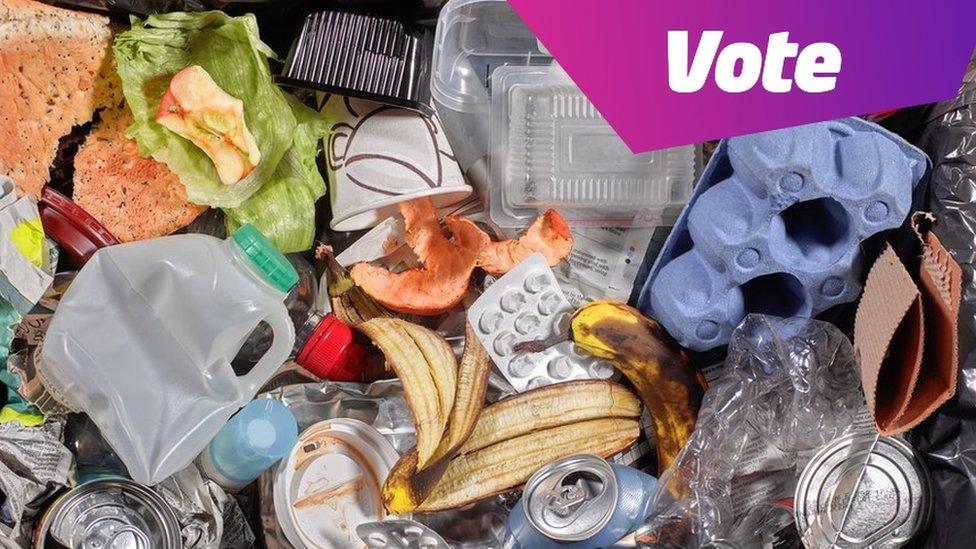
- Published22 May 2019
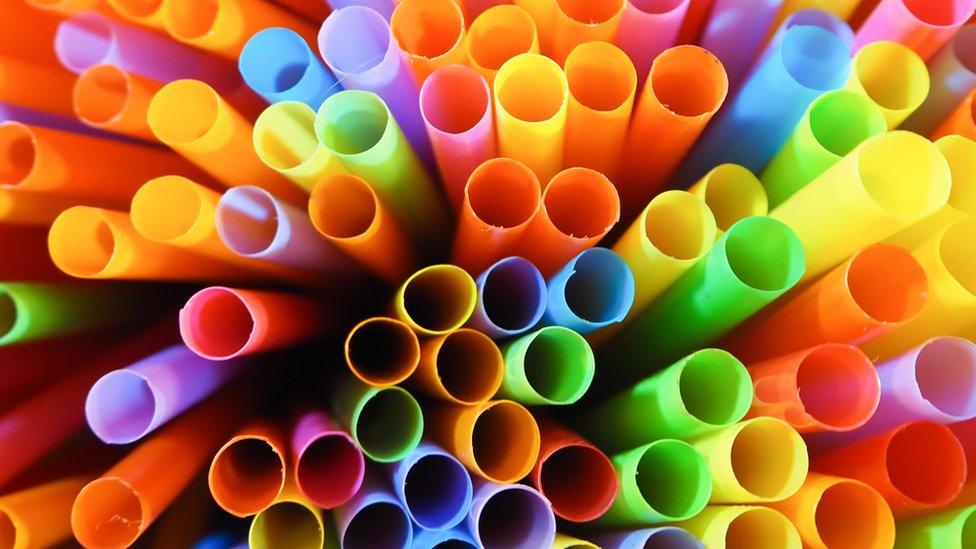
- Published17 March 2020
